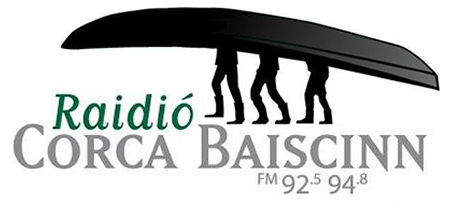Duties include:
- Reception and Clerical Duties
- Full Training Provided
- Reporting To the station Manager
CE Programme eligibility.
19.5 Hours Per Week.
For further information find contact details below or contact the Station Manager at

 Stax Green
Stax Green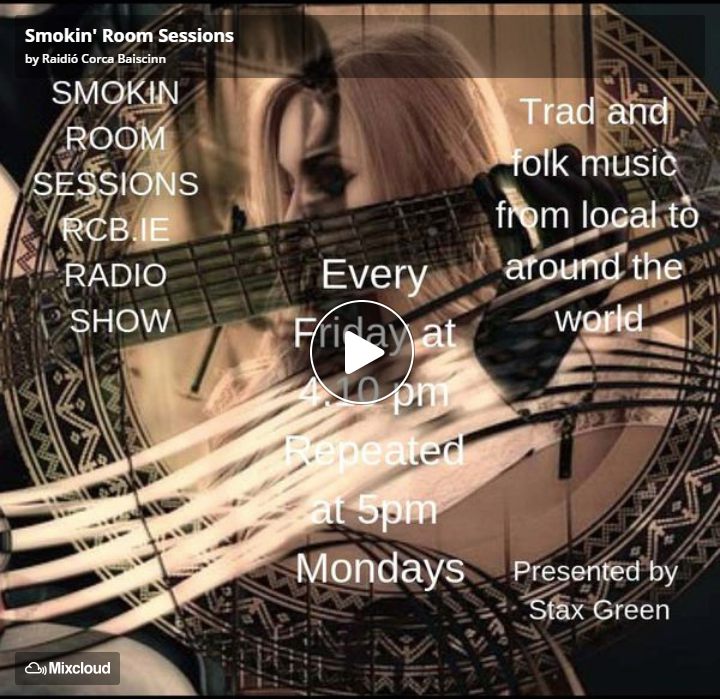
 Mikey’s Mix back on the air for Friday’s from 2:30pm, stay tuned for a treat. Where you be in for a serious mix of music from classics to new music and even remixes which you wont hear anywhere else only on Mikey’s mix. Tune on Friday’s from 8pm to 9pm (with your dancing shoes on and ready).
Mikey’s Mix back on the air for Friday’s from 2:30pm, stay tuned for a treat. Where you be in for a serious mix of music from classics to new music and even remixes which you wont hear anywhere else only on Mikey’s mix. Tune on Friday’s from 8pm to 9pm (with your dancing shoes on and ready).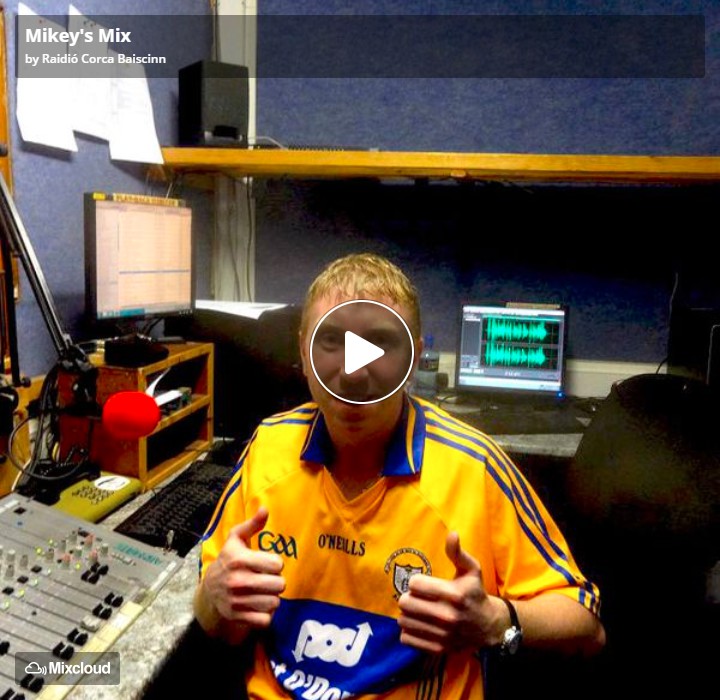
Lorna produces and presents the successful show: ‘The Genealogy Radio show’ aired each Thursday at 4p.m. from beautiful Kilkee, Co. Clare at Raidio Corcabaiscinn and Podcasts are available weekly.
Lorna has delivered conference papers at Oxford; Lincoln College: Exploration of the Medieval Gaelic Diet: (2012); seminar papers at the Moore Institute in NUI Galway, ‘The Gaelic Lordships in Thomond, c. 1400-c.1500’ and papers at Irish Conference of Medievalists on themes of Brian Boru and landscape of East Clare. Lorna has published on medieval themes and on maritime subjects. Her research areas are the MacNamaras and O’Briens of Thomond.
Lorna received her Certificate for the Advancement of Forensic Genealogy (CAFG) in Dallas in March 2015.
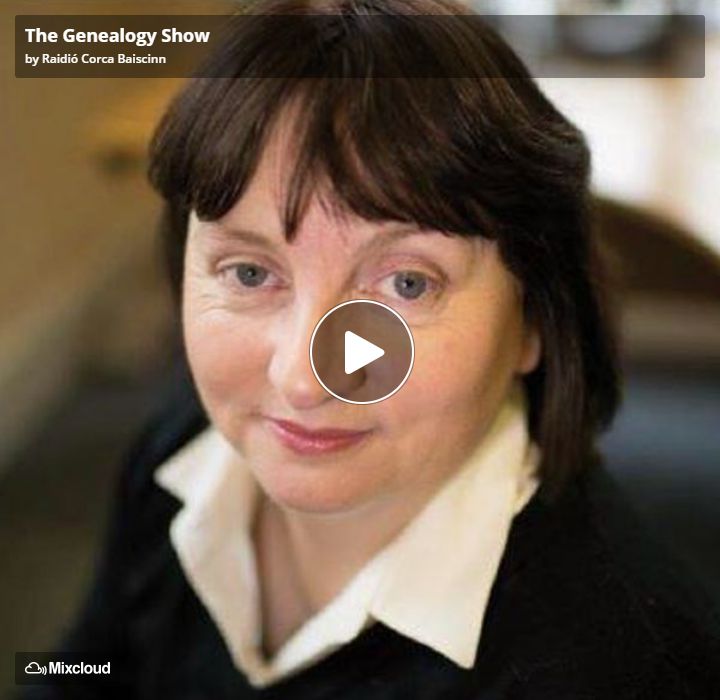
 Ballyea Choir and the recording of a new live CD for the Crumlin childrens research programme. Plus other news/topics and music. Presented by Stax Green.
Ballyea Choir and the recording of a new live CD for the Crumlin childrens research programme. Plus other news/topics and music. Presented by Stax Green.
 Please note that if you wish to join the Zoom link, please confirm by e-mail to no later than 08th October 2021 and the Zoom invite details will then be forwarded to you.
Please note that if you wish to join the Zoom link, please confirm by e-mail to no later than 08th October 2021 and the Zoom invite details will then be forwarded to you.
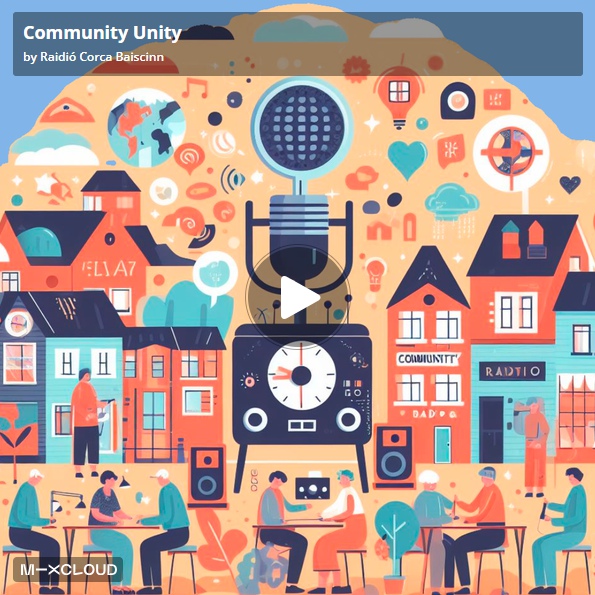
 Radio Beams show this week is with the well know Ruairi McKiernan who came to live in Clare with his partner. Ruairi born in Cavan has done a lot of travelling. He also had time to set up a well know organisation called SPUN OUT. Then he wrote a wonderful book called Hitching for Hope.
Radio Beams show this week is with the well know Ruairi McKiernan who came to live in Clare with his partner. Ruairi born in Cavan has done a lot of travelling. He also had time to set up a well know organisation called SPUN OUT. Then he wrote a wonderful book called Hitching for Hope.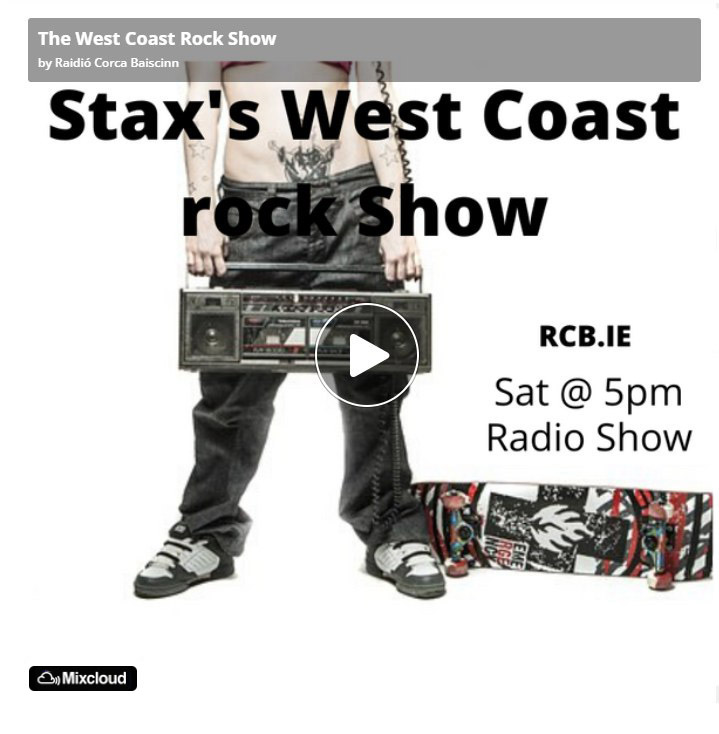
 DJ Brian Clohessy. Each week Brian will feature a local artist along with a variety of well known hits.
DJ Brian Clohessy. Each week Brian will feature a local artist along with a variety of well known hits.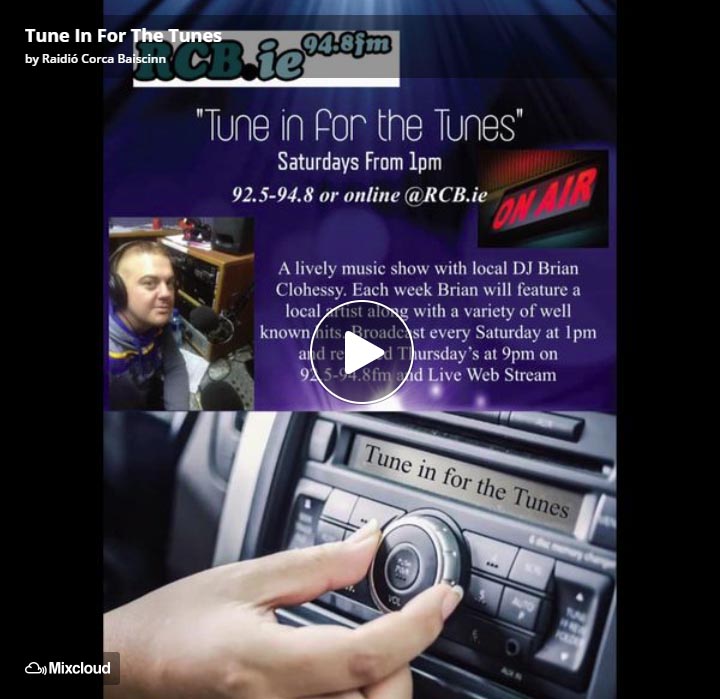
 Stax Green facebook page .
Stax Green facebook page .
 Mikey’s Mix on the air for Friday afternoon from 2:30pm, stay tuned for a treat. Where you be in for a serious mix of music from classics to new music and even remixes which you wont hear anywhere else only on Mikey’s mix. Tune on Friday’s from 8pm to 9pm (with your dancing shoes on and ready).
Mikey’s Mix on the air for Friday afternoon from 2:30pm, stay tuned for a treat. Where you be in for a serious mix of music from classics to new music and even remixes which you wont hear anywhere else only on Mikey’s mix. Tune on Friday’s from 8pm to 9pm (with your dancing shoes on and ready).

Our highlight communications updates for you from this week are:
-Over 91% of people aged 16+ are fully vaccinated, and over 90% of people aged 12+ have received at least 1 dose. Registrations and vaccinations are ongoing.
-An additional COVID-19 vaccination dose for those who are immunocompromised is beginning to be offered. This is for people whose immune system is weak due to a health condition or a specific treatment. Please find further information below.
-A booster dose of the COVID-10 vaccine for people aged 80 and over who are living in the family home, and people aged 65 and over who are living in long-term residential care will begin from October 4th onward. Please find further information below.
-Pregnancy and getting a COVID-19 vaccine: it is safe to get your COVID-19 vaccine at any stage of your pregnancy. Guidance has changed on doses during pregnancy because there is more evidence available. You can find more information here.
-Flu Vaccines: The HSE is encouraging people aged 65 and over, and all healthcare workers to come forward for their annual flu vaccine. The flu vaccine can be safely given at the same time as the COVID-19 vaccine, and it’s free of charge from the GP, Pharmacist, or your workplace if you work in healthcare. See https://www.hse.ie/flu for more, and further information below.
You can find information here about the public health measures in place.
You can find the public health measures here.
Additional COVID-19 vaccination dose for those who are immunocompromised
Having a weak immune system puts you at higher risk of serious illness if you get COVID-19. Getting vaccinated will give you some protection against this.
If you have a weak immune system, you may be offered another COVID-19 vaccine dose to give you better protection.
You can find information on who may need an additional COVID-10 vaccine dose here.
Hospitals will identify the people who need an additional dose. You do not need to register of contact anyone. People who need an additional dose will receive a text message with an appointment for their vaccine.
These additional doses will be given through HSE vaccination centre near you, or your hospital if you’re an inpatient. GPs may also vaccinate some people.
COVID-19 vaccine booster dose
If you have received a COVID-19 vaccine course, you will be offered a booster dose if you are:
-80 or older, or
-65 or older and living in a nursing home or long-term residential care facility
If you are aged 65 or over, and live in residential care, you will be vaccinated by the care team where you live.
If you are aged 80 or over and not living in residential care, you’ll be invited for your vaccine by your GP during the next few weeks. Some GPs will refer patients to a vaccination centre.
If you are aged 65 to 79 and do not live in long-term residential care, you do not need a booster dose at this time.
You can find more information about the COVID-19 vaccine booster dose here.
Pregnancy and getting a COVID-19 vaccine
You should get a COVID-19 vaccine to protect yourself from the virus if you’re:
· pregnant
· trying for a baby or might get pregnant in the future
· breastfeeding
You will need 2 doses of your COVID-19 vaccine.
It is safe to get your COVID-19 vaccine at any stage of your pregnancy.
Guidance has changed on doses during pregnancy because there is more evidence available.
You should get the COVID-19 vaccine when it is offered, following a discussion with your midwife, GP or obstetrician.
You can find more information here.
Mixed vaccines doses
People who received a first dose of AstraZeneca can now receive an mRNA (Pfizer/Moderna) vaccine as their second dose. NIAC recommends that receiving two doses of the same vaccine are preferred for all age groups, where possible. You can read more about this here. Dose 2 walk-in vaccination clinics for people who wish to get an mRNA vaccine after their first dose of the AstraZeneca vaccine are listed here.
COVID-19 Testing – Online Booking System
Full details of how to get tested are available here.
COVID-19 Contact Tracing – Online System
If you test positive for COVID-19 you will get a text message. This will include a link to a website where you can upload contact details for your close contacts. If you do not use the website, a contact tracer will phone you to collect the details. You can find out more about close contacts here.
COVID-19 Vaccination Programme
You can find the latest information on vaccines administered here.
Face covering exemption cards
The HSE National Disability Services team have developed a limited number of “face covering exemption cards” for individuals who have a condition that makes them unable to wear a face covering as per the Government guidelines (in retail and health centres and on public transport). An application to receive a card can be made by an individual or Provider Organisation by emailing . In the event of an application for an individual, validation will be sought regarding the condition that the applicant is using to apply for the card.
12 to 15 year olds
12 to 15 year olds can attend walk in vaccination clinics. You can find more information here. Children aged 12 to 15 must attend with their parent or guardian.
We’re inviting parents of children aged 12 to 15 to register their children now. All children in this age group are being offered a vaccine but we particularly recommend that they get vaccinated if they:
· have a health condition that puts them at higher risk of severe illness from COVID-19
· live with someone who is at higher risk of COVID-19
Parents can read more about the benefits and risk of vaccination for their children here.
Register online to get a COVID-19 vaccine.
Read the user guide for help with registering online.
Find information here on who can give consent for vaccination of a young person aged under 16 years
If you cannot register online, you can call the COVID-19 helpline at Freephone: 1800 700 700 to register by phone.
Find a pharmacy giving COVID-19 vaccines
Many pharmacies are now offering COVID-19 vaccines to people aged 12 and over. Find a pharmacy to book your vaccine appointment. You can find more information here.
Where to find COVID-19 Vaccination Information
We encourage everyone to read about the COVID-19 vaccine and to get their information from a factual, trusted source – here are the links to the pages with information on the vaccine:
· Checkhttps://www2.hse.ie/screening-and-vaccinations/covid-19-vaccine/ for information about the vaccine, information on this page is updated regularly
· Find the vaccine information materials at https://www.hse.ie/eng/services/covid-19-resources-and-translations/covid-19-vaccine-materials/
· Details on COVID-19 vaccines administered are available here
· Read the full COVID-19 Vaccine Allocation Strategy
· Read the National Immunisation Advisory Committee Chapter about COVID-19 vaccine
· COVID-19 vaccine information for health professionals
· Information in Irish Sign Language: information resources on the COVID-19 vaccines in Irish Sign Language are available here.
· COVID-19 vaccines easy read and accessible information formats are availablehere.
Information for Parents about the changes to contact tracing and testing for children aged between 3 months and 13 years in Early Learning and Care (ELC) and School Age Childcare (SAC), education (primary school), sports and social settings
This guidance is available here.
FAQs for School Principals, Early Learning and Care (ELC) and School Age Childcare (SAC) Managers or those hosting sports/social activities for children ages 3 months to less than 13 years, or in primary school
This guidance is available here.
Isolation quick guide: adults and children from their 13th birthday
This guidance is available here.
Flu vaccine
It’s flu season so if you’re 65 or over, it’s time to get your annual flu vaccine.
While anyone can catch the flu, people aged 65 or older are more at risk of getting seriously ill or needing hospital treatment. So make an appointment with your GP or pharmacist today. Learn more: https://www.hse.ie/flu and please see the attached campaign pack with information and images to share with your networks.
‘Let’s Get Back’ Campaign
‘Let’s Get Back’, is a national awareness campaign encouraging the Irish public to get back involved in the sport and exercise that they love. ‘Let’s Get Back’ has been created by Sport Ireland in partnership with Healthy Ireland to encourage members of the Irish public who are anxious or unsure about returning to sport and physical activity following the easing of COVID-19 restrictions.
The campaign intends to reassure people that it is possible to do so in a safe and secure manner. The campaign will be supported by the National Governing Bodies of Sport in Ireland and the network of Local Sport Partnerships.
Members of the public can get information on how to return to sport and activities in a safe way by visiting https://www.sportireland.ie/letsgetback. The campaign message is tailored to ensure that it reaches those most in need of support and encouragement and it is hoped that this campaign can touch the hearts and minds of every age, ethnicity, demographic, ability and more.
BreastCheck information campaign
The new BreastCheck campaign commenced in September and continues through October, for Breast Cancer Awareness Month. The campaign is aimed at women aged 50-69, who are eligible for breast screening, and explains that there are delays to BreastCheck appointments due to COVID-19. The campaign encourages women to be breast aware and to know the symptoms of breast cancer. It’s important to remind women that if they have symptoms, they should contact a GP without delay. Please see the partner pack attached for further information. We would be grateful for your help in sharing this information to your networks, colleagues and members.
Quit
The HSE is inviting people who smoke to take the 28-day no smoking challenge this October
and join thousands of others who have already used the HSE QUIT service to quit smoking in 2021. Please find attached a campaign partner pack. We would be grateful if you would help share the campaign messages.
Public Health Information
As always, for the most up to date information and advice on Coronavirus, please go to: https://www2.hse.ie/conditions/covid19/ and https://www.hpsc.ie/a-z/respiratory/coronavirus/novelcoronavirus/. Clinical and professional guidance relating to COVID-19 is available on https://www.hpsc.ie/ where you’ll find up to date guidance for healthcare settings and non-clinical settings.
Please check here for the most up to date partner resources for COVID-19.
You can find the COVID-19 A-Z information here from the HSE’s Health Protection Surveillance Centre (HPSC).
Please also check the Healthy Ireland site here with further resources and information on the Keep Well campaign.
You can view the latest information on how Ireland is responding to cases of COVID-19 here
